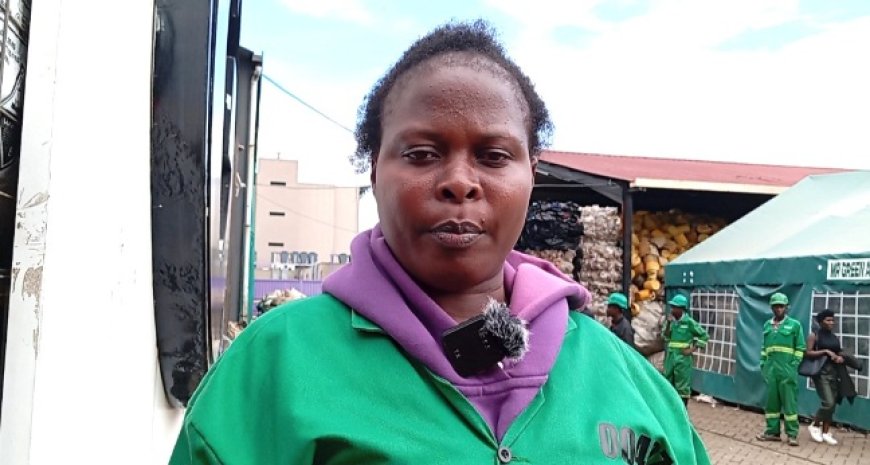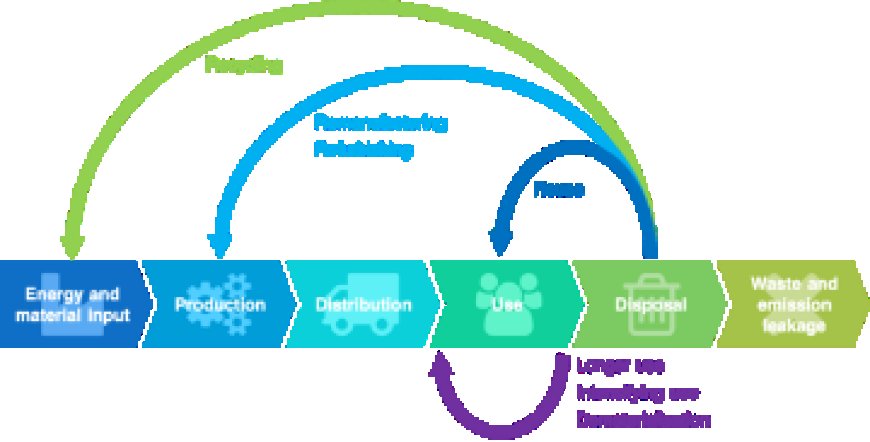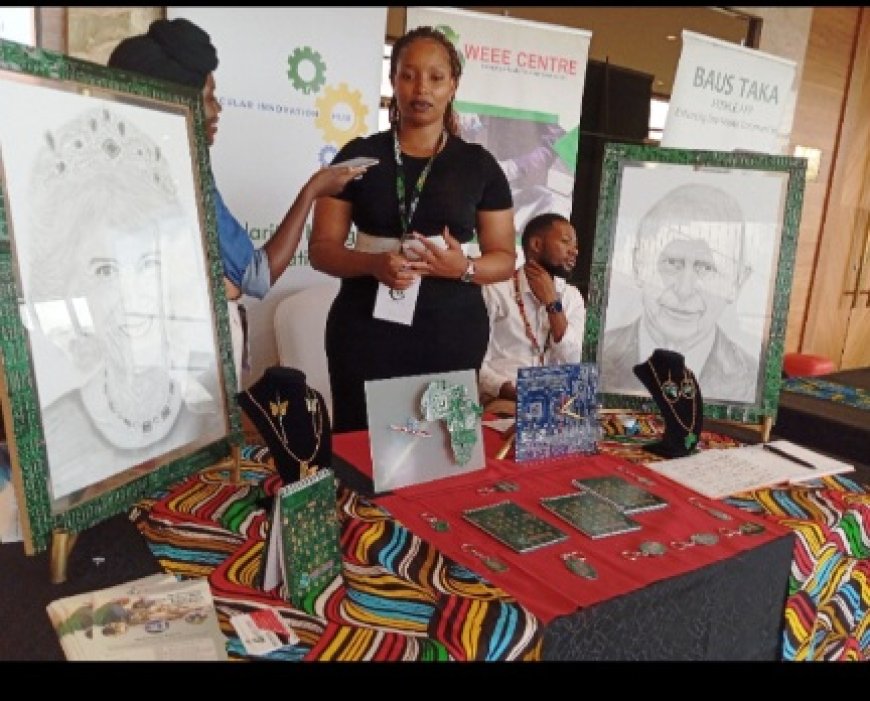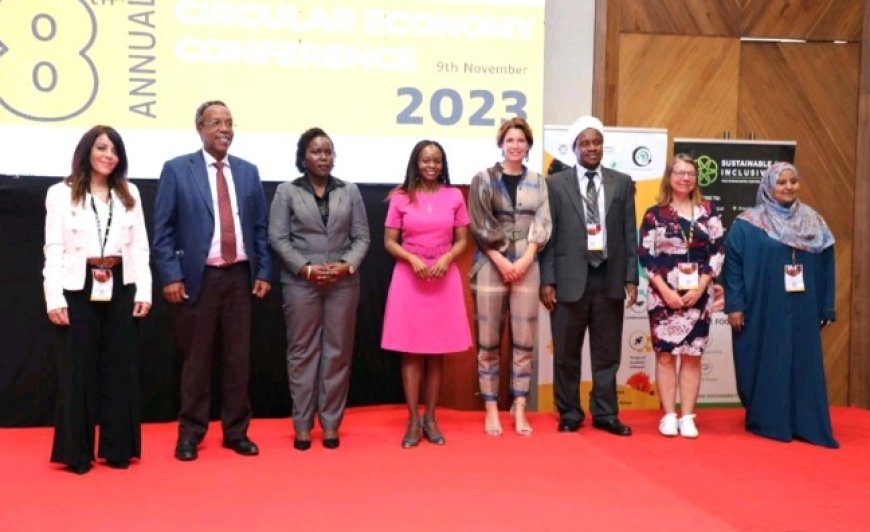Nurturing Decent Work and Social Development Through Circular Economy

By Sharon Ambani
Every morning at 6:00 am, Verah arrives at her workplace, eager to perform the day's tasks. She works as a productivity assistant in the color sorting section at Mr Green Africa in Nairobi, an enterprise that converts plastic waste into post-consumer recyclates sold to other manufacturers for the production of other goods.
On a typical day, she begins by delivering a safety talk to her team, as safety and protection are priorities in her line of work. She then assigns the workers into groups that work together to sort the collected plastics into different colors. Thereafter, Verah weighs the load and sends it to a machine (eddy current separator) that removes non-ferrous material from the plastics.
The rank she currently holds did not come easy. Verah reflects on being jobless before 2018. Previously employed as a marketing ambassador for one of Kenya's leading brands at a local supermarket, she was forced to entirely rely on her husband after the back-to-school promotion ended.
In 2018, an acquaintance introduced her to the plastic recycling world, where she started as a colour sorter. She worked on the tables for some time until an opportunity arose for her to climb the ladder. The mother of one boy can now support her family with the salary she gets.
"When I got employed here to do colour sorting, I got excited because I had been jobless for a while. However, the pay at that stage is quite low. After being promoted to productivity assistant, my salary was increased,” says Verah.
“Although the money I get is not enough due to tough economic times, I can now help my husband foot some of the bills. The company also provides health insurance for me and my family. When I am sick, I get treated at Komarock Hospital, one of the quality healthcare facilities around here," she adds.
Verah is among many who earn a living from a circular economy, despite some people viewing the nature of her job as a lack of dignity.

The Circular Economy Concept
Circular economy is a model of production and consumption where existing materials are regenerated into other products in a sustainable and environmentally friendly manner. This can be done through recycling, reusing, repairing, sharing and refurbishing these products to lengthen their life as long as possible while minimizing waste.
According to Prof. Charles Akol, an Environmental Affairs Officer at the United Nations Economic Commission for Africa, the model offers a sustainable way of production that will protect the already depleting natural resources.
“With a projected double increase in the world’s population by the year 2050, there is a high chance of depletion of resources used in production to meet human needs. We need a model of production that maximises the use of available resources in production and solving human needs.”
While speaking during a media workshop for Eastern and West African journalists on circular economy, Prof. Akol noted that the world is grappling with the adverse impacts of climate change driven by human activities. Therefore, companies, organisations, governments and individuals should transition to a sustainable development framework to tackle the climate crisis.
While the model conveys an environmental agenda, experts and studies raise the need to tap into the economic and social benefits of a circular economy. The sector has emerged as a contributor to meaningful employment and fostering social progress.

A lady showcasing innovative ways of managing e-waste
The International Labour Organisation estimates that transitioning to a circular economy will create about 7 to 8 million jobs by 2030. Some of the green job opportunities include waste collectors, machine technicians, designers, policy-makers and managerial positions, to name a few. With the current unemployment rate of about 4.9 per cent (2.9 M people) in Kenya, the transition will address the current labour market woes while providing many a livelihood.
Luke Caroll from ILO says having the potential for socio-economic development is not enough. The jobs created need to be decent as well. He notes that those currently working in the sector get little motivation due to the numerous challenges of informality and hazardous working conditions.
“Most workers are clustered in the informal sector, receive low wages, work in a hazardous environment, lack funding and have minimal skills. In addition, there are visible gender gaps where vulnerable groups, such as women, tend to occupy lower positions in the production chain,” says Luke.
The United Nations' Sustainable Development Goal 8 recognises the significance of attaining decent work and sustainable economic growth. Circular economy can be used to operationalise this goal among others such as SDG 1 No poverty, SDG 5 Gender Equality, SDG 4 Quality education and SDG 13 Climate.
For a just transition, Luke recommends policies that will address the marginalisation faced by these workers. Such policies will promote labour standards, especially in developing countries, to ensure workers like Verah, economically and socially benefit from decent jobs while conserving the environment.
“Employers must also create a conducive working environment for their employees. They must ensure they pay their workers well. Moreover, employees should have safety materials, such as gloves and helmets, to protect them from injury. In addition, employers should also capacity build their workers through training to equip them with recurring knowledge of the ever-progressing sector,” added Luke.

Dr. Njenga Second from left with Speakers from the Conference
While addressing the attendees of the 8th Circular Economy Conference in Nairobi, Dr. Gorge Njenga, a lecturer from Strathmore University urged the inclusion of circular economy into the education curriculum to foster innovativeness among students.
“There is immense talent and great minds in these institutions. They have the potential to innovate production initiatives, hence creating jobs for the students after school. Teaching circular economy in schools will equip students with the know-how of becoming sustainably productive,” says Dr. Njenga.
Looking ahead, the future of the circular economy involves humanizing its narrative. Beyond statistics and projections, the stories of individuals like Verah, who benefit from this transition, need to take center stage.
What's Your Reaction?


















































